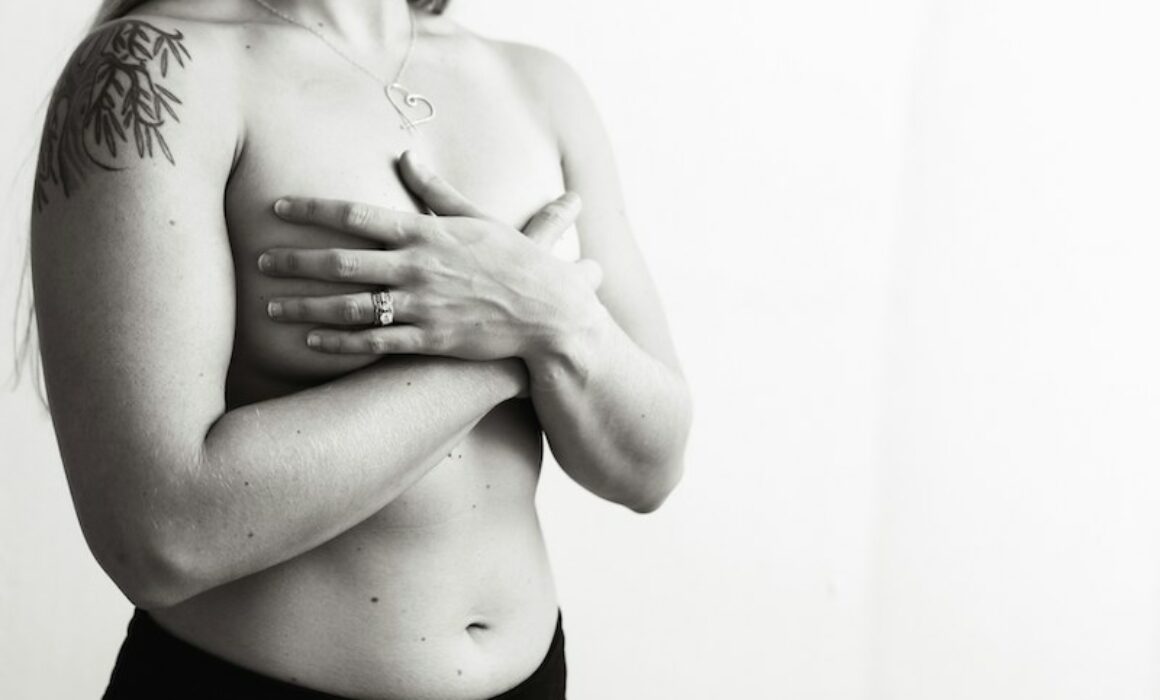
Let's Nail Breast Cancer - Help support our urgent appeal on the 19th - 20th May 2024
Let's Nail Breast Cancer - Help support our urgent appeal on the 19th - 20th May 2024
Let's Nail Breast Cancer - Help support our urgent appeal on the 19th - 20th May 2024
Let's Nail Breast Cancer - Help support our urgent appeal on the 19th - 20th May 2024
Let's Nail Breast Cancer - Help support our urgent appeal on the 19th - 20th May 2024
Cancer is a daunting diagnosis that can significantly alter your life. However, even after successful treatment, the fear of cancer recurrence and a lack of trust in your body can cast a long shadow. You may find yourself constantly monitoring your body for any signs of the disease, causing anxiety and disrupting your sense of normalcy. This article – the sixth of Dr Jane Clark’s series on navigating life after cancer – delves into the issue of trust in your body and provides strategies for helping to rebuild this trust while reclaiming your sense of self. Dr Clark explores the transformative effects of treatment, and the challenges of managing anxiety and hypervigilance. Through personal anecdotes and practical advice, she aims to help you empower you to navigate the fear of recurrence and re-establish a healthy relationship with your body. Learn how to set realistic expectations, establish guidelines for seeking reassurance, and re-learn to interpret bodily sensations accurately. Read on for Dr Clark’s insight and advice.
Regaining trust in your body
This article is adapted by Dr Jane Clark from an article originally written by Jane and Dr Peter Harvey. See our introduction for a background on this series of articles.
For many of you, your cancer will have been discovered while you were feeling reasonably well and healthy – either through some sort of screening programme, through investigations for another illness or for a relatively innocuous symptom.
You may have had few – if any – times when you felt ill or had very troubling symptoms (this is not true for everyone, but it is a common experience nonetheless).
How is it possible to have the disease that so many dread without feeling sick? This is another of the many paradoxes of cancer.
Surely if you are ill then you should feel ill? This doesn’t last long however, because you then start treatment – and for most people that’s when they do start feeling ill.
All the treatments change your body in one way or another, sometimes permanently and often for a period of time that lasts much longer than the treatment itself.
Recognising when something is wrong
One of the consequences of all this is that you may lose faith in your ability to recognize when something is wrong with your body. After all, you may not have been able to tell that you had cancer in the first place and your body is now significantly changed so that there is a whole set of new and unusual sensations to experience.
This is most marked in the period after treatment when the anxieties are still high and the uncertainty at a peak. Is this lump the cancer coming back? What does that pain mean? Should I go back to the clinic, just in case?
The rules have changed, and you need to learn a new way of handling the aches and pains, lumps and bumps that you would not have given second thoughts to before all this started.
Hypersensitivity
This will all be made worse by a perceptual bias and hypersensitivity to these changes. All this means is that you will be on the lookout for them in a way that you were not before. You may be monitoring your body in a much more intense and detailed way than previously.
This is a combination of doing what you have probably been told to do by the clinical staff and your own real anxieties and fears. Previously insignificant and benign bodily changes become magnified and interpreted as a result of your immediate past experience.
Setting your own guidelines
It is important to keep this in check and to give yourself some guidelines to manage your fears. For example, if the pain lasts for more than a couple of days or gets worse, if there are symptoms associated with the site of your surgery for more than a certain length of time, only then might you need to call your doctor.
Your consultant and specialist nurse will be able to give you guidance as to what they think will be important. (If you want to educate yourself more about the signs of secondary breast cancer see our sections on: Key Things to Know About Secondary Breast Cancer and Questions to Ask Your Oncologist about Secondary Breast Cancer.)
Whilst many people quite naturally, and over time, learn to manage this unpleasant and frightening experience, some will not, especially if they have always been a ‘bit of a worrier’ about their health. In this case, it is important that you have very open conversations with your consultant, your GP and specialist nurse about how you can access expert reassurance quickly and without having the sense of being a nuisance.
Just as you have learned about your body whilst you were growing up, so you can re-learn about it in later life.
This lack of trust in your body may be made worse if you have been through a difficult diagnostic process. Whilst it is possible to make a speedy and accurate diagnosis, some of the presenting signs and symptoms (a breast lump, bleeding from the back passage) are often associated with problems other than cancer.
In order to exclude these more common problems and to avoid over-worrying patients, doctors sometimes will play down the possibilities. This may not always be the most helpful thing to do but it is sometimes seen as a way of protecting the patient.
Dealing with doctors
However, this really does become a problem if it develops into a bit of a battle between you and the doctor. If you feel that you haven’t been taken seriously and you feel that your concerns have been brushed aside then this creates a whole new series of hurdles.
A good example is of a woman who had a history of lumpy breasts. She had been seen regularly by her clinical team and, as with many women with this condition, her lumps were benign. However, she noticed that one lump felt different and this worried her greatly. In her view, this lump was different. Unfortunately, this opinion was not held by the medical team who assured her that it was benign and that there was really nothing to worry about. Whilst this went some way to relieve her worries, she still felt that there was something wrong. She returned to clinic but got the same ‘don’t worry’ message.
This went on for some time and her worries increased because she still felt that this lump was different. She decided that enough was enough and demanded that the lump was more fully examined. With some reluctance the team arranged for a biopsy. When she returned for the results she was told ‘Well, you’ve given us all a bit of a shock’ as the lump was, in fact, cancerous.
This outrageously insensitive statement is a prime example of how not to tell someone they have got cancer. But there is another important issue here. She had gone to the ‘experts’ with a problem. In her judgement, there was something wrong with her body, but the ‘experts’ had told her something different. Who should she trust – herself, with all her knowledge of her own body acquired over many years, or the ‘experts? It took a good deal of courage on her part to disagree with her clinical team and she got no satisfaction from finding out that she was right, and they were wrong. But it undermined her judgement both in herself and in the system that is meant to be here to help. Not only was she left with a loss of trust in system, but she also was left feeling uncertain about how to read her own body.
MANAGING THE FEARS
A fairly common experience when people become frightened by unusual and unexpected changes in their body is that they wonder whether it’s a sign of the cancer returning. As we have seen, this is not an unusual or an illogical thought to have – it makes sense. This can become a problem when your thoughts change from wondering to expecting.
Let’s look at this in some more detail. You notice an ache or pain. Before your diagnosis, you might have thought briefly about it, perhaps decided to ignore it, perhaps found an explanation but dealt with it without very much additional thought.
This all changes after your diagnosis because the possibility now exists that this might be a sign of something more sinister which cannot be just brushed aside. This much is quite understandable, and no-one can tell you that your worry is silly or unrealistic.
The danger comes when your thoughts immediately turn into ‘This is the cancer coming back’. A fear has changed from a possibility to a certainty, from ‘might’ to ‘will’. If this is happening to you, then there are a few simple steps that might be helpful to reign in your fearful thoughts.
- First, you must not tell yourself that you are being silly! It is true that an ache or pain might be a sign of the cancer coming back so to worry about it is not worrying over nothing. Acknowledge your fears in a kind and compassionate way.
- Second, focus on the word ‘might’. If you can accept that word rather than the word ‘will’, then there is an opposite thought to contemplate ‘the cancer might not have come back’. For every might there is a might not. This is very important but can feel risky. You may feel that you are somehow tempting fate – if you believe that it is not cancer then it will turn out to be malignant.
- Third, and most difficult, is getting a sense of probability – might and might not are expressions of chance and balance. Is it more or less likely that this is the cancer returning? The aim is to get a sense of balance that you can live with, without your fears dominating and overwhelming you. You can do this in a number of ways. You can ask yourself if you have had a pain/symptom like this before you were diagnosed. If so, try to remember what it was caused by and what you did to manage it. You may also need to remind yourself that many symptoms have more everyday causes than cancer – a headache, for example, can be due to dehydration, lack of sleep, tension, that extra glass of wine last night. It can be helpful to think of other causes before including the possibility of the cancer’s return.
- Fourth think about what the effect of checking yourself too regularly might be having on your mind and body. After cancer in one breast, it is common for women to check the other breast for lumps. Sometimes this checking can happen a bit too frequently. By over-checking (e.g., daily checks), you could reduce your ability to detect changes in your breast and also you can make the area sore and tender, which can lead to more worry. It’s worth asking your doctor or nurse specialist what they would advise in terms of how often you should check.
In going through a process like this you may well find that you feel in a bit more control of your fears – those fears may still be there, but they may feel less overwhelming. This process is simply taking your fears seriously by acknowledging their basis in reality, but then dealing with them in a direct way.
Dr Jane Clark, Consultant Clinical Psychologist
FURTHER INFORMATION
The next article in this series of articles explores the fear of recurrence and you can read it here 7: Life After Breast Cancer: How to live with uncertainty and manage the fear of recurrence.
If you’re looking for more support, Future Dreams hold a range of support groups, classes, workshops and events to help you and your carers during your breast cancer diagnosis. These are held both online and in person at the London-based Future Dreams House. To see what’s on offer and to book your place, see here.
To return to the homepage of our Information Hub, click here where you can access more helpful information, practical advice, personal stories and more.
This page was reviewed in April 2024 by the Future Dreams team.
The information and content provided in all guest articles is intended for information and educational purposes only and is not intended to substitute for professional medical advice. It is important that all personalised care decisions should be made by your medical team. Please contact your medical team for advice on anything covered in this article and/or in relation to your personal situation. Please note that unless otherwise stated, Future Dreams has no affiliation to the guest author of this article and he/she/they have not been paid to write this article. There may be alternative options/products/information available which we encourage you to research when making decisions about treatment and support. The content of this article was created by Dr Jane Clark, Consultant Clinical Psychologist and we accept no responsibility for the accuracy or otherwise of the contents of this article.
©️ 2023 Jane Clark and Peter Harvey. With quotes from the creators of the Ticking off Breast Cancer website (now Future Dreams Information Hub). All rights reserved.
Share

Support awareness research
Donate to those touched by BREAST cancer
Sylvie and Danielle began Future Dreams with just £100 in 2008. They believed nobody should face breast cancer alone. Their legacy lives on in Future Dreams House. We couldn’t continue to fund support services for those touched by breast cancer, raise awareness of breast cancer and promote early diagnosis and advance research into secondary breast cancer without your help. Please consider partnering with us or making a donation.



